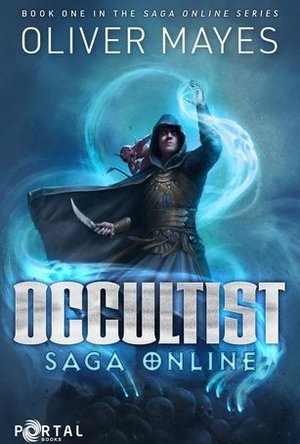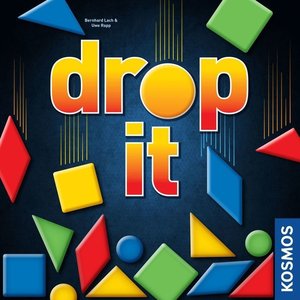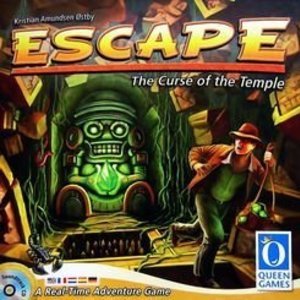
Clarity: Ten Proven Strategies to Transform Your Life
Diane Altomare and Marci Shimoff
Book
When was the last time you sat down and actually paid attention to your feelings? When emotions are...
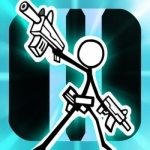
Cartoon Wars 2: Heroes
Games
App
The most complete defense and real-time strategy game of the Cartoon Wars series! ...
Ross (3284 KP) rated The Occultist in Books
Feb 12, 2019 (Updated Feb 14, 2019)
The LitRPG genre (the best-known example being Ready Player One) is something of a narrow one. There are only a few levers to pull: the main character's real life scenario, the game mechanics, the main character's chosen "class" in-game and the conflicts therein.
The Occultist looks to mix this up a bit with the main character choosing a less traditional class, of occultist - that is, he learns the ability to summon a variety of demons and spells/abilities to use with them. This would mark The Occultist out from the crowd, if it weren't for Awaken Online already having done almost the exact same. In AO, Jason chooses a dark class and summons zombies, skeletons etc, and a large part of the early stages of this book really bear a very close resemblance to AO. We have the main character's problems at home, leading him to want to escape into the game, and to find a way to make money from his gaming hobby. The chosen in-game path is almost identical. There is an extremely strong, popular player that he wants to compete with.
From early on, I was thinking this book was a rip-off of AO. But the second half of the book is really where the book marks itself apart from AO. Whereas that book's action was focused on large scale strategy in battles, here we are scurrying around in the background picking players off one by one and there are some truly excellent action sequences, where the abilities and spells learned and the demons at Damien's disposal are used to some really creative effects. Damien looks to get some revenge on his nemesis and also to try and "level up" quickly (again, a key component of LitRPG books), and tries to pick off players as they battle other players, or take on perilous dungeons.
A lot of LitRPG books have had a very immersive gaming element, at times it was more like reading a more traditional fantasy book but where the main character was more clear what he was doing and what skills/abilities he was using. Here you are always aware the character is in a game: he "equips" clothes rather than getting dressed, there is no need for eating or sleeping, what can and can't be done, what you get from killing another character etc is so much more in line with games than in other books. This again marked it out from other books, and gave it a very different feel.
Another major selling point of The Occultist is that it doesn't mess around with time dilation (game time running at a much faster rate than real time). I don't see why so many of the other books in this genre feel the need to build this in, as it is then hard to keep it consistent, and doesn't really feel right or necessary at any time.
Also, Damien's real world troubles take more focus than in other books, as he struggles to find somewhere to live and is on the run.
While the book manages to stick to its own rules (what can and can't be done etc), there is one moment where the main character manages to do something he shouldn't be able to do (his spells have a cool down period before they can be used again and at least once this isn't observed), which was slightly frustrating given how hard the author had tried to plan out the action in line with the people involved and their skills and strengths.
My only real gripe with the book is the title of the game/series - Saga Online, which sounds less like an exciting new MMORPG, and more like the web portal for booking a pensioners' cruise!
In summary, not an original idea (but hard to have such a thing in this genre) but a superbly well told, exciting and fun read. I heartily recommend this to anyone who likes fantasy books, games like the Witcher or just anyone looking for some real fun escapism.

AFL LIVE 2
Games and Sports
App
Lead your team to Premiership glory in the most realistic AFL experience on iPhone and iPad. Play...

Virtual Families for iPad
Games and Entertainment
App
Happy Holidays from the LDW Team! The full, original version of Virtual Families from your desktop...

Integrated Vehicle Health Management: Business Case Theory and Practice
S.A.E. International and Ian K. Jennions
Book
Following the best seller, Integrated Vehicle Health Management: Perspectives on an Emerging Field ,...
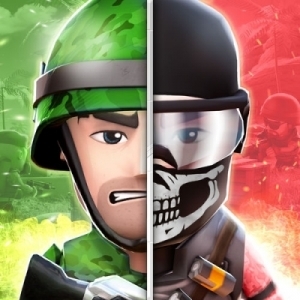
WarFriends: PvP Shooter Game
Games
App
Battle it out against friends and real-world opponents in WarFriends, the action packed real-time...
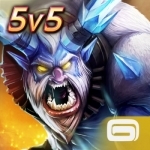
Heroes of Order & Chaos - Multiplayer Online Game
Games and Entertainment
App
THE ULTIMATE MOBA FOR MOBILE HAS JUST BEEN REVAMPED, REIMAGINED AND REINVIGORATED! Team up and...
Purple Phoenix Games (2266 KP) rated Drop It in Tabletop Games
Oct 22, 2019
Did you ever play Connect 4? Who am I kidding, of course you probably did. Drop It is essentially an abstract version of Connect 4. In Drop It, players take turns dropping their pieces into the slot board in an effort to amass the most points. Each player has a set number of pieces in their specific color, and in various shapes. The rules of Drop It are simple – pick a piece and drop it (roll credits) into the board. You earn points for the highest level that your piece crosses into, as well as bonus points for touching various smaller areas across the board. Sounds easy enough, right? Well here’s the tricky part. If your piece touches another one of your pieces, even if by just a hair, it earns you no points. Similarly, if your piece touches another piece of the same shape (regardless of color), you earn no points as well. AND on top of that, certain areas along the bottom and sides of the board are colored and are not allowed to be touched by their corresponding colored pieces. If a piece touches one of those forbidden zones, then that player earns (you guessed it) no points. So all in all, not as simple a game as it looks, is it? The player at the end of the game with the most points is the winner!
Man, Drop It is a neat little game. When I first heard of it, I thought it would be the easiest game on the planet. But boy oh boy was I wrong. Although I’d say this game is primarily one of dexterity (and luck), there is definitely quite a bit of strategy involved. Because there are several placement restrictions, you have to be careful about which pieces you play at what times. The circles roll around on pretty much anything, so do you risk dropping one when it might just roll onto your square and negate those points? Can you drop your trapezoid at the right angle to have it span two other pieces and miss landing on yours in the middle? All while making sure it doesn’t hit the left side of the board here? It is way more strategic than meets the eye, and I love that. It keeps me engaged the entire game, and it elevates the game to a higher level than just simple dexterity.
Whatever strategy you choose must involve your opponents as well. Even though there is no real player interaction in Drop It, you’ve got to keep an eye on your opponents and which pieces they play at what times. If another player just dropped their square right in the middle of the board, you probably should not drop your square right now. Unless you don’t want points. Then by all means, drop your square right on top of that sucker. Are you able to keep a variety of shapes throughout the game, or will you get cornered for several turns because all you have left are your circles? You’re not only thinking of your strategy, but that of your opponents as well.
One other thing that I love about Drop It is that once a piece is scored, it is out of your mind. What I mean is that in some cases, dropping a piece causes those underneath to shift. You only score the piece that was just dropped – regardless of how it moved any pieces underneath. That definitely helps to keep the game moving because you are not having to constantly go back and re-score any shifted pieces. That would just be brutal.
Overall, I really like Drop It. It’s not one that I personally own, but it definitely is on my Wish List after having played it. It’s the perfect little filler game for in-between some meatier games. Although it requires strategy, the dexterity aspect of the game makes it more light-hearted, fun, and fast to play! Purple Phoenix Games is dropping a score of 14 / 18 for this little gem.
Purple Phoenix Games (2266 KP) rated Escape: The Curse of the Temple in Tabletop Games
Jul 16, 2019 (Updated Dec 10, 2019)
Your latest quest has brought you and your comrades to an ancient temple. While exploring, you come across a treasure cache – score!! Your team decides to take it…for research purposes of course…but unbeknownst to you, this temple and its treasure are cursed, and you have just literally brought that curse down upon yourselves. The temple begins to collapse, and you and your team must make it to the exit alive! But wait, which way did you come from? Seriously? Did nobody leave any breadcrumbs? Which path is the right way? Too late to ask questions, just go! Traverse your way through this maze of a temple and get out! Will you make it out? Will your comrades make it too? I guess you’ll just have to wait and see…
DISCLAIMER: There are several expansions to this game, but we are not reviewing them at this time. Should we review them in the future we will either update this review or post a link to the new material here. -T
Escape: The Curse of the Temple is a real-time cooperative game in which players must roll dice, uncover new tiles, and find their way to the exit before the temple collapses, trapping the explorers inside. Played in exactly 10 minutes, all actions are taken simultaneously – you are trying to escape after all! By rolling dice, players can uncover new rooms and find magic gems. Once the exit tile has been discovered, all players must make their way to it and out of the temple! Strategy is key – do you move as a group in the same direction (there is safety in numbers…) or do you split up in an attempt to find the exit more quickly? That’s up to you and your team to decide – but decide quickly, because time is running out!
One super neat thing about this game is the countdown timer/soundtrack. When I say the game takes 10 minutes to play, I mean that literally – there is a timer! The corresponding soundtrack really brings the theme to life and creates a unique atmosphere. The pressure of a time limit means that players are frantically rolling dice and moving throughout the temple, just as they would be frantically searching for the exit in the real world. For a pretty simple game of dice-rolling, I think the timer adds to the overall excitement of the game – without it, there is no element of urgency and the theme would not feel as authentic.
That being said, timers kind of stress me out in games. One thing that can alleviate some of the pressure created by the timer is being able to work as a group. Cooperation is important to success because everyone wins or loses together. I don’t have to race against the clock on my own, I just need to do my part to help the group succeed. Whether it’s uncovering new room tiles or pooling dice with another player to find magic gems, winning Escape is, overall, a group effort.
If you’ve never played a real-time game or one with a timer before, I would recommend Escape: The Curse of the Temple. It’s simple enough to be a good introduction to the mechanics, yet engaging and exciting enough to keep you coming back. Purple Phoenix Games gives it a heart-pounding 17 / 24.
